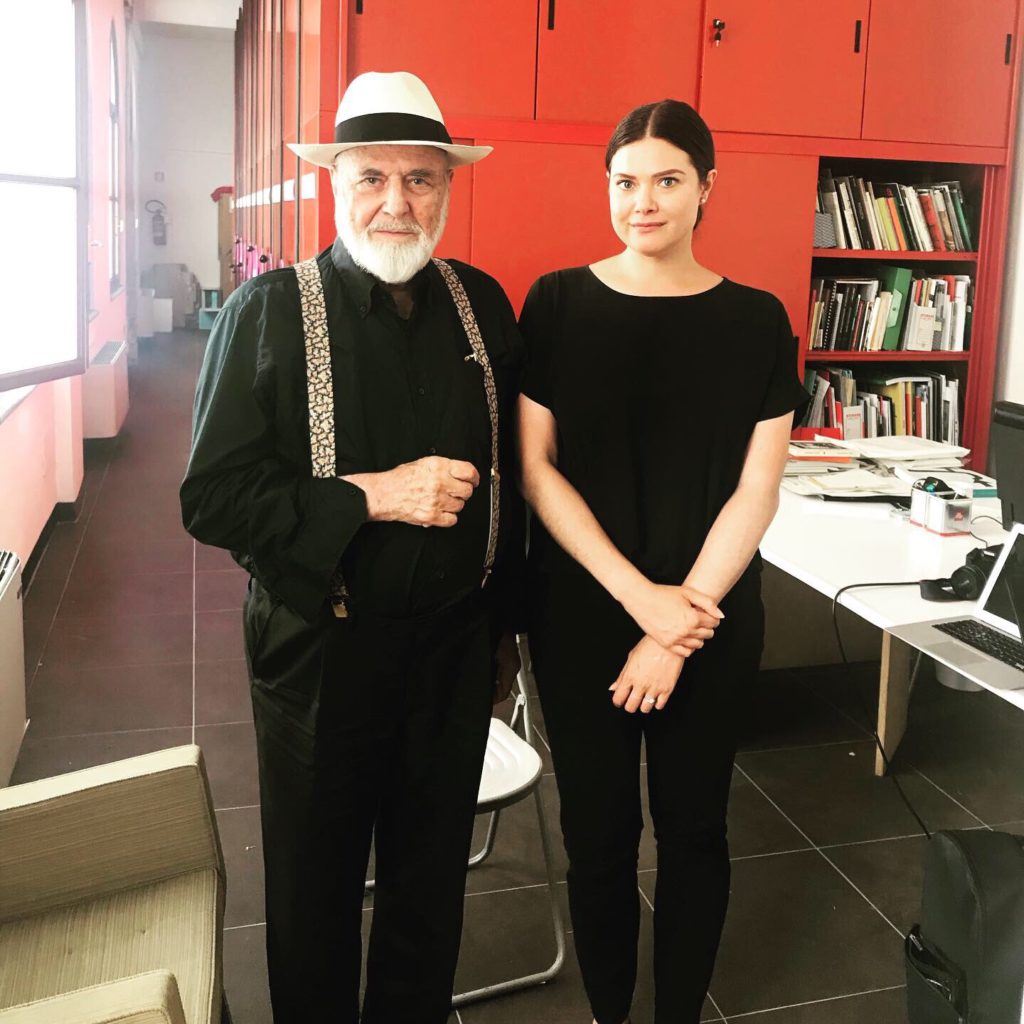Art History Professor Tenley Bick Accepts Italian Art Research Residency for 2019–20
Department of Art History Professor Tenley Bick has accepted an invitation to be the 2019–20 Scholar in Residence at Magazzino Italian Art, a museum and research center located in the Hudson River Valley just north of New York City. In addition to providing access to postwar and contemporary Italian art, rich scholarly literature, and a community of researchers sharing her interests, the fellowship-residency will provide Dr. Bick with an invaluable opportunity to continue to revise her monograph on Italian artist Michelangelo Pistoletto for publication. Although the research center is relatively new, it offers scholars working in modern/contemporary Italian art a high-profile platform from which to promote their research. Dr. Bick will be the first American scholar to hold the residency.
Professor Tenley Bick
Dr. Tenley Bick joined the Department of Art History in 2018 as an Assistant Professor of Global Contemporary Art. She has taught graduate seminars on Postwar Italian Art and the Global Sixties, and undergraduate courses on Contemporary Art and Artistic Labor, and Contemporary Arts of Africa and Its Diasporas. She received her PhD in Contemporary Art History at the University of California, Los Angeles in 2016. Dr. Bick specializes in modern and global contemporary art with a focus on post-WWII European art (especially Italy) and contemporary African art. Dr. Bick is a past recipient of funding through a CFA Faculty Travel Grant to support her international research agenda.
Her current book project, Figure as Model: Michelangelo Pistoletto and the Italian Avant-Garde in the Global Sixties, examines the work of the contemporary Italian artist within the politicized cultural contexts of post-WWII Italy and Europe, and against the broader geopolitical horizon for art of the 1960s. Focusing especially on the artist’s investigation of conventional figuration as a critical model for postwar creative practice, her book offers a counter-narrative to dominant histories of postwar art in and out of Italy, and theorizes a new language of figuration for the broader field of art history. Her research also includes a second book-length project, on African arts and Italian colonialism. Dr. Bick is chair of the Emerging Scholars Committee of the Italian Art Society, a professional organization dedicated to the study of Italian art and culture. She has previously conducted research in Italy and Ethiopia.
Her scholarship has been published in Third Text, African Arts, and in the edited volume Theorizing Visual Studies: Writing Through the Discipline (eds. J. Elkins and K. McGuire, et al.). Her translation work (Italian to English) has also been published, appearing in the exhibition catalogue Ends of the Earth: Land Art to 1974 (eds. M. Kwon and P. Kaiser). Dr. Bick was previously Visiting Assistant Professor in the Washington College Department of Art and Art History.
As an art historian of postwar Italian art and global contemporary art, I am always thinking about creative practice on a local and global level, while questioning how art and art history have navigated, framed, and shaped cultural politics in a variety of contexts. In my research and teaching in the CFA at FSU, I aim to think about how study of Italian art and its reception in and outside of Italy can make us think differently about postwar and contemporary art and the discipline of art history more broadly. I share then in Magazzino’s dedication to fostering the study of postwar and contemporary Italian art outside of Italy—especially in the United States—and look forward to conducting my research in the presence of works of art that can teach us so much.
Magazzino Italian Art
Magazzino Italian Art Foundation is a museum located in Cold Spring, New York, devoted to Italian Postwar and Contemporary Art. Magazzino, meaning warehouse in Italian, was co-founded by Nancy Olnick and Giorgio Spanu.
Designed by Spanish architect Miguel Quismondo, the 20,000 square-foot structure was completed in June 2017. Magazzino serves as a resource for scholars and students and offers an extensive library and archive of Italian Art. In addition, Magazzino has become a cultural hub for the vibrant Hudson Valley community thanks to the joint programs with local organizations.
Under the guidance of Director Vittorio Calabrese, his team and its curatorial programs, Magazzino Italian Art bridges collaborations with American and Italian institutions not only to support contemporary Italian artists but also to foster discussions on Italian Postwar and Contemporary Art in the United States.
